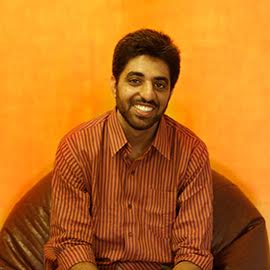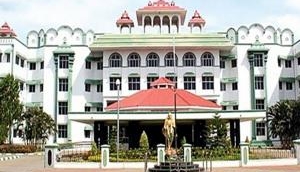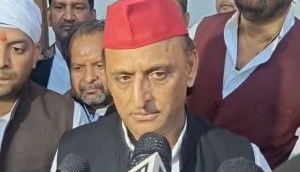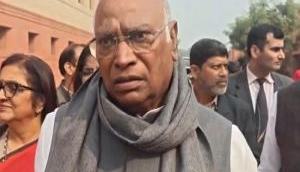
On 1 August, members of Akhil Bhartiya Vidyarthi Parishad (ABVP) entered the campus of Kirori Mal College (KMC) in Delhi University and stopped the screening of documentary film 'Muzzafarnagar Abhi Baki Hai'.
According to them, the film was 'Anti-National' and it showed the country in a bad light. This action by ABVP members drew criticism from motley group of people belonging to different areas, including Delhi University teachers and students.
In response to that, an organisation called Cinema of Resistance is organising country-wide protest screenings of the film on 25 August.
National Convener of the organisation, Sanjay Joshi said, "We are getting a good response from the people and currently 32 places from 17 states have been finalised for the screening."
The director of the film said " The disruption of the film's screening was very unfortunate. It shows how the current government and their storm troopers are out to quash any dissenting voice. However, the call by Cinema of Resistance to hold protest screenings and the kind of overwhelming response it's getting shows that people will not tolerate this kind of cultural policing, and any such attempt by these regressive organizations will always be resisted."
What is the film based on?
The documentary is based on 2013 Muzzafarnagar riots which claimed lives of hundreds of people. The film suggests that the riots were planted by some Hindu right wing outfits and that the ruling Samajwadi Party government did not do much to prevent them.
The film is directed by Nakul Sawhney who is an alumnus of KMC and also an executive member of the organisation, Cinema of Resistance.
What is the whole issue?
KMC's film society organised the screening of the film on 1 August and the college students were present there to attend it. After the film ran for 45 minutes, some young men entered the room and shouted slogans of 'Bandh Karo'. They also stood in front of the projector and stopped the event from moving forward.
This move by the members of ABVP attracted criticism from students and teachers of Delhi University and other colleges in the country too. Students of the Jawaharlal Nehru University (JNU) under the banner of Democratic Student's Federation (DSF) organised a screening in their campus just a few days after the incident happened.
Other organisations like All India Student's Association (AISA), Democratic Teachers' Federation, Krantikari Yuva Sangathan, etc. also issued statements condemning the act.
What is the purpose of protest screenings?
According to the organisers, the country-wide screening is to protest against the growing interference of Modi government in the educational institutions of the country.
"This is not the only incident. There have been several other similar incidents in the past. The government is doing the same in case of FTII and they are trying to kill the freedom of expression", said Sanjay Joshi.
He asserted that if someone doesn't agree with the point of view of the film, that doesn't mean the film should be banned. "We are against this censorship, this is fascism," he added.
The organisation chose 25 August as the date because it is also the death anniversary of Shubhradeep Chakravorty, who used film-making as a tool to counter the problem of communalism.
The DVD of the documentary is being provided to those who wish to extend their support and screen the movie in their area. Wherever the infrastructure is not available to organise a screening, a small meeting is being organised to discuss the problem of communalism in India.








![BJP's Kapil Mishra recreates Shankar Mahadevan’s ‘Breathless’ song to highlight Delhi pollution [WATCH] BJP's Kapil Mishra recreates Shankar Mahadevan’s ‘Breathless’ song to highlight Delhi pollution [WATCH]](https://images.catchnews.com/upload/2022/11/03/kapil-mishra_240884_300x172.png)

![Anupam Kher shares pictures of his toned body on 67th birthday [MUST SEE] Anupam Kher shares pictures of his toned body on 67th birthday [MUST SEE]](https://images.catchnews.com/upload/2022/03/07/Anupam_kher_231145_300x172.jpg)






